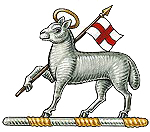 The Queen's Royal Regiment
The Queen's Royal Regiment
 |
The Glorious First of June Silver Rose Bowl It was presented by Captains B T Pell and Hardy. This rose bowl is still competed for annually between HMS Excellent and our successor regiment The Princess of Wales’s Royal Regiment.
|
The Army in India Infantry Efficiency Prize - The Kitchener Cup
The competition was instituted by Lord Kitchener when he was Commander-in-Chief in India. He presented a trophy, the Kitchener Cup, and directed that all Infantry battalions in India should compete. There were at that time some 50 British Army battalions and 120 Indian Army battalions that formed the Infantry element of the Empire’s garrison in India. The training requirements were simpler though no less demanding physically than nowadays, the poacher gamekeeper skills of the modern infantryman were not needed for ‘duties in aid of the civil power’. The priorities then were shooting and marching; these were the days before motor transport and units had to be capable of marching quickly to any scene of trouble, if necessary over long distances.
In the lines, debate would have centred on whether peak efficiency was attained by the ‘bun-punchers’ or teetotallers, or those who imbibed ‘neck oil, or purge’, the terms used for canteen beer. Figures are not available for the 1st Queen’s, but in the runner-up battalion the 2nd Royal Welch Fusiliers, the five soldiers who dropped out on the march, a serious offence, were all teetotallers. The competition was assessed as being too severe as there were a large number of casualties, some fatal, and it was not repeated. The 1st Bn The Queen’s Royal Regiment were allowed to retain the Kitchener Trophy. This is in three parts, a silver cup, silver statuette and a bronze statuette. These are now held by The Princess of Wales’s Royal Regiment. |
Related







